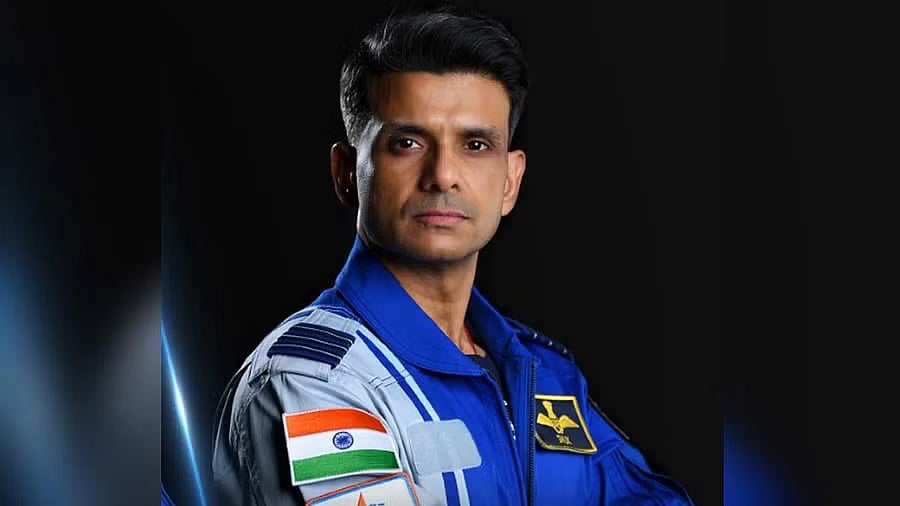
Group Captain Shubhanshu Shukla
Credit: X/@DrVedu
New Delhi: The Axiom-4 space flight carrying the second Indian astronaut Group Captain Shubhanshu Shukla will take off on May 29 from the Kennedy Space Centre in Florida.
"The Ax4 crew is scheduled to launch to the International Space Station on May 29 at 1:03 pm EDT (10.33 pm IST) from Florida," Axiom Space Inc said in a social media post.
The space travel by Group Captain Shukla – a decorated Indian Air Force fighter pilot - comes four decades after Wing Commander Rakesh Sharma's (also an IAF pilot) iconic 1984 spaceflight onboard Russia's Soyuz spacecraft.
Besides Shukla, the Ax-4 crew includes members from Poland and Hungary, marking each nation's first mission to the International Space Station in history and the second government-sponsored human spaceflight mission in over 40 years. Group Captain Shukla will be the mission pilot.
Sławosz Uznański, European Space Agency (ESA) project astronaut, will be the second Polish astronaut since 1978, while Tibor Kapu will be the second national Hungarian astronaut since 1980.
Veteran US astronaut Peggy Whitson will command her second commercial human spaceflight mission, adding to her standing record for the longest cumulative time in space by an American astronaut.
During his two-week long stay at the International Space Station, Group Captain Shukla, among other things, will try to grow Moong and Methi in microgravity conditions to aid a group of Karnataka farm scientists zero in on India-specific diet for future astronauts.
Three of the seven experiments planned by Indian Space Research Organisation onboard the ISS are related to food while there will be two on health impacts, including one on how the astronauts react to computer screens in space.
“We want to explore India-centric food options because of which one of the experiments will be on sprouting green Moong and Methi (fenugreek). How the sprouting happens, will be analysed later,” Tushar Phadnis, group head for microgravity platforms and research at ISRO said, responding to a DH query at a virtual press conference on Tuesday.
Titled 'Sprouting Salad Seeds in Space: Relevance to Crew Nutrition', the experiment has been designed by researchers at the University of Agricultural Sciences, Dharwad and Indian Institute of Technology, Dharwad.
Other two food experiments are on the impact of microgravity on growth and yield parameters in food crop seeds and the impact of microgravity radiation in ISS on three strains of edible microalgae.
For the yield parameter test, seeds of cereals, pulses, oil crops and vegetables are being exposed to microgravity conditions and cultivated on the Earth for a few generations. “This will lay the foundation of space farming in future,” Phadnis said.
The food experiments, he said, were as per the ISRO roadmap on sustained presence of humans in space and having its own Bhartiya Antriksh Station, which may be realised in a few years of time.
The Ax-4 crew will launch aboard a SpaceX Dragon spacecraft to the space station and spend up to 14 days at the orbiting laboratory. As many as 60 experiments will be conducted at the ISS, including 26 by Hungary and seven by India.
